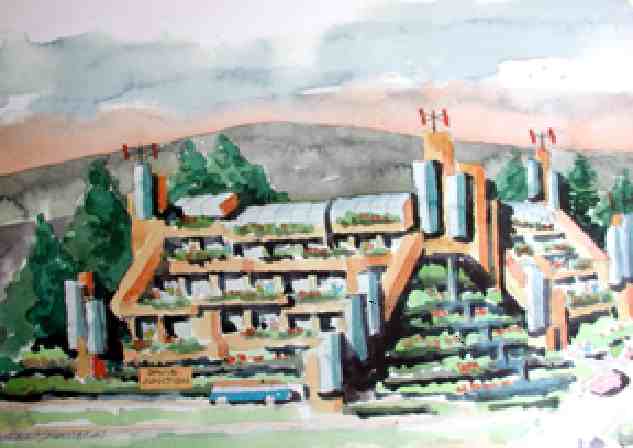|
|
|
 |
Transit EcoVillages |  |
|
|
||
| Transit EcoVillages: Limited Equity Cooperatives
Limited-equity cooperative housing is a form of multi-family housing that offers residents both affordability and management control. Limited-equity co-ops are common in a number of cities and are particularly well-established in New York City and Washington, D.C., each of which has or has had city-sponsored subsidy programs that support cooperative development. Limited-equity cooperatives are identical, in almost all respects, to market rate cooperatives, with the fundamental difference that they restrict resale prices to maintain affordability. This emphasis on affordability makes limited equity cooperatives a form of homeownership and resident control that is accessible to a broad range of incomes, although most limited-equity cooperatives are limited to households with moderate or low incomes. Ownership Structure In a cooperative, whether limited-equity or market-rate, co-op members do not have ownership interests in the real property itself but in shares of stock in the corporation that owns the property. Co-op members pay a monthly maintenance charge, which includes their portion (usually calculated on a share basis) of the cooperative’s management and operating costs. These costs include real estate taxes and insurance, as well as principal and interest on the underlying, or blanket, mortgage loan that the cooperative corporation obtained to pay for acquisition and any necessary rehabilitation of the property. Equity/Resale Restrictions A primary purpose of limited-equity cooperatives is the development of a permanent stock of affordable housing. To accomplish this objective, all limited-equity cooperatives have resale restrictions. These restrictions are usually incorporated into cooperatives’ by-laws and into individual occupancy agreements. |
||
 A transit ecovillage in California. |
||
| Transit EcoVillages Built in Air Spaces
Communities are designed with private balconies, rooftop gardens, edible landscaping, water collection and storage, gray water use, low energy and water use appliances, day care and exercise areas. Many of the possible locations for transit ecovillages are above existing parking lots along the rail corridor. Since transit ecovillages are car-fee communities the parking lot would continue to be used for its current purpose, and the transit ecovillages would be built in the air space above the lots. |
||
 A rendering of a transit ecovillage built above a parking lot, with the SolTrain passing in front of the ecovillage. |
||
| Beautiful Monterey Bay Locations
The Union Pacific Railway hugs the beautiful Monterey Bay coastline.Communities are being planned in Santa Cruz, Capitola, Watsonville and Marina. |
||
 Monterey Bay Coastline |
||